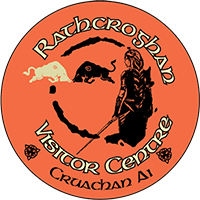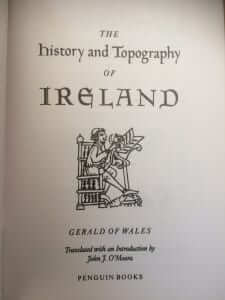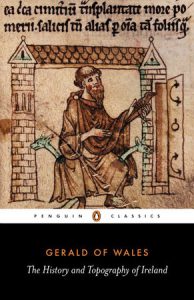Tulsk Remembers The Great Famine 1845-1849
€10.00Tulsk Remembers The Great Famine 1845-1849
Published by Tulsk History Society



Tulsk Remembers The Great Famine 1845-1849
Published by Tulsk History Society
Boyle Abbey, Co. Roscommon – Conservation, Architecture and Archaeological Excavations 1982–2018
Archaeological Monograph Series: No.13
Edited by Fionnbarr Moore and Geraldine Stout
Boyle Abbey is a National Monument in State Care in the town of Boyle, Co. Roscommon. It was the principal Cistercian house in the kingdom of Connacht in the medieval period and its ruins today are among the best preserved of the order to be found in the country. Since 1892 it has been in the guardianship of the Commissioners of Public Works who have maintained the site. In the 1980s the Office of Public Works (OPW) undertook conservation works which involved archaeological excavation. Subsequently, in 2006 the OPW commenced a major programme of conservation works on the abbey, which involved dismantling and restoring the north aisle wall of the church, which had bowed. This was one of the largest stone conservation projects undertaken by the state and involved a multi-disciplinary team of experts, including engineers, architects and archaeologists who worked closely together to oversee the entire project through to completion. These works have produced a vast body of new information on the history, architecture and archaeology of Boyle Abbey, which is presented in this volume.
The style of this book is that of the Ballintober Old Graveyard and The Grave Memorials of Co. Roscommon. Like the Ballintober book, there is a catalogue of the Kilmeane memorials, including inscriptions, photos and references to those listed in the census of Elphin 1749. The Kilmeane memorials are compared to those of the nearby graveyards of Killinvoy, Athleague, Rahara and St. Coman’s and then extending out to other Roscommon graveyards. References are also made to memorials in other Irish graveyards.
Contributors include Dr. David McGuinness, Dr Daniel Curley, Seamus Lough, Martin A. Timoney, P. David Sweetman, John Macklin, Albert Siggins, Eilish Feeley, Jaqueline née Craven d. Towey.
Mary B. Timoney, originally from Waterford and living in south Sligo, has been researching graveyard memorials since 1984. She received an M. A. from UCC in 2001 for her study of ‘The Decorated Box Tombs of the Skreen School, Co. Sligo, c. 1780 – 1850’. In 2005 she published ‘Had Me Made, A Study of the Grave Memorials of Co. Sligo from c. 1650 to the Present’ and ‘Ballintober Old Graveyard’ in 2018. She has lectured and published on grave memorials in Co.s Cavan, Monaghan, Roscommon and Sligo as well as on the Association for the Preservation of the Memorials of the Dead, Ireland, and on the care of graveyards.
Richly illustrated, this book is a valuable resource not just for the people of Roscommon, but a template for memorial studies in other counties.
This research began in 2012 with the study of the grave memorials of the late 17th century to the 1860’s in Ballintober Old, Co. Roscommon. The richness of memorial work here is indication of the importance of Ballintober and the O’Conor family. A catalogue of these memorials, including the full inscription, photo and references is given.
Details: 528 A4 pages, 1,331 colour images, hardback only.
Mary B. Timoney, originally from Waterford and living in south Sligo, has been researching graveyard memorials since 1984. She received an M. A. from UCC in 2001 for her study of ‘The Decorated Box Tombs of the Skreen School, Co. Sligo, c. 1780 – 1850’. In 2005 she published ‘Had Me Made, A Study of the Grave Memorials of Co. Sligo fro c. 1650 to the Present’. She has lectured and published on grave memorials in Co.s Cavan, Monaghan, Roscommon and Sligo as well as on the Association for the Preservation of the Memorials of the Dead, Ireland, and on the care of graveyards.
Moygara Castle, with its four towers, gatehouse and high curtain walls, is one of the most impressive masonry-built monuments in north Connacht. Constructed in the late fourteenth/early fifteenth century by the O’Garas, the castle functioned as a centre of their lordship of Coolavin.
This study of Moygara Castle marshals various fields of expertise – history, archaeology, architecture, geography, genealogy, geophysical survey and DNA analysis – to provide much-needed information about life in later-medieval Gaelic Ireland.
Contributors include Kevin Barton, Jason Bolton, Anne Connon, Phyl Foley, Paul M. Kerrigan, Máire Ní Chearbhaill, Kieran O’Conor, Maura O’Gara-O’Riordan, Christopher Read and Rory Sherlock.
Kieran O’Conor is senior lecturer in the School of Geography and Archaeology, National University of Ireland, Galway.
The Cave of the Cats
by AnnMarie Murray
Dive into the ancient mysteries of Halloween and wander into Oweynagat, where three fearsome cats, the Morrígan, and otherworldly creatures bring chaos to the world we know!
Follow Nera, a brave warrior, as he risks everything on Samhain night, drawn by the promise of a golden sword! Join him as he descends into the depths of the Cave of the Cats, where spine-chilling creatures and magic waits beyond the veil.
Learn about the origins of Halloween (Samhain), from the legends of the Jack-o’-Iantern to the pumpkins glowing on windowsills today, and of the tradition dressing-up in scary attire-because you never know…
Visit the royal capital of Cruachain under the rule of Queen Medb, and get swept up in the chaos of Bricriu’s Feast. From Ireland’s Iegendary heroes to its most terrifying creatures, this book brings these ancient tales to life in a thrilling adventure you’ll never forget!
The Burning of Knockcroghery
Written and Illustrated by AnnMarie Murray
This colourful children’s book brings to life the story of the burning of Knockcroghery in 1921 by the Black and Tans and the resilience of the local community as they deal with the aftermath of their destroyed village. Told through the eyes of young Sally Finnegan, it is vividly illustrated and contains interesting facts on the Crofton estate at Mote Park, the Clay Pipe industry and the backdrop of revolutionary Ireland.
Excavations at Tlachtga, Hill of Ward, Co. Meath, Ireland
by Stephen Davis and Caitríona Moore
Initial remote sensing survey at Tlachtga, Co. Meath in 2011–12 highlighted the presence of multiple, partially overlapping phases of enclosure at the site. Three subsequent seasons of excavation provided critical interpretive evidence, with over 15,000 fragments of animal bone, human remains, charred plant material, evidence of metalworking, and a hoard of Anglo-Saxon silver coins dating to the late 10th century AD.
The main activity at the site spans four broad periods and two main phases of monumental construction: a late Bronze Age to early Iron Age ‘Hillfort Phase’ (1100–400 BC) and a late Iron Age to early medieval (AD 400–600) ringfort phase associated with a smaller foundation enclosure – the ‘Southern Enclosure’. This ringfort phase was remodeled later in the early medieval period (9th–10th century AD) and augmented by a phase of mound construction in the mid-10th century AD. This is contemporary with the deposition of the coin hoard east of the main complex in an apparent craft-working area. The final phase of the central mound indicates the construction of a timber stockade, most likely in the 12th century, again with significant craft activity.
This volume represents the excavation of at least four loci within the broader monumental landscape of Tlachtga, charting its progression from Bronze Age hillfort to pre-Anglo Norman power display mound.
The Elusive Mrs. Walcott: An 18th Century Entrepreneur and the Rookwood Estate, is a compelling
work that seamlessly combines local history with genealogical facts. Drawing on an impressive array
of primary sources, including leases, wills, land, church and state records, historian and genealogist
Nuala Farrell-Griffin explores her Farrell and Flaherty ancestors and their connection to Lettice
Caulfield Walcott. Known primarily as the woman at whose sole expense the Roscommon Infirmary
was built in 1783, and is obliquely commemorated on a stone plaque in the Foyer as, “Mrs. Walcott,
sister to the Lord Chief justice Caulfield of Donamon”. Naula’s meticulous research brings this
remarkable woman, and several of her ‘attached relatives’ to life.
Gerald of Wales was among the most dynamic and fascinating churchmen of the twelfth century. A member of one of the leading Norman families involved in the invasion of Ireland, he first visited there in 1183 and later returned in the entourage of Henry II. The resulting Topographia Hiberniae is an extraordinary account of his travels.
This accessible translation preserves the directness and lively storytelling of the original and includes maps, illustrations and notes.


Festival Pin Set –
Mark Ireland’s Cross Quarter Festivals with these colourful enamel pin gift sets representing Imbolc, Bealtaine, Lúnasa and Samhain. Beautifully illustrated by Catherine Geaney of Nine Arrow, each pin is 32mm x 32mm, with silver plating and a metal clutch.
Hard enamel pin depicting the Mórrígán, the Irish goddess of war whose fit abode was the Cave of Oweynagat.
Size: 45mm, packaged in cellophane on a backing card. Designed and produced by the artist, Friz.
|
Due to a Health & Safety review there will be restricted entry into the cave during our site tours until further notice. |